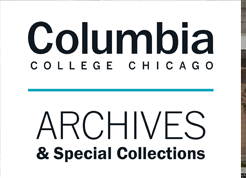Document Type
Article
Loading...
Publication Date
Fall 2009
Keywords
Charles Drew, Chicago Teachers Union, Wal-Mart (Firm), Prexy Nesbitt, International Union, United Automobile Workers of America (CIO), Coalition for Illinois' Divestment from South Africa, Martin Luther King Jr., Basil Clunie, Legal Assistance Foundation of Chicago, Ronald Reagan, Nelson Mandela, African National Congress, Steel industry and trade-South Africa
Disciplines
Political Science | Political Theory | Race and Ethnicity | Race, Ethnicity and Post-Colonial Studies | Work, Economy and Organizations
Abstract
Length: 88 minutes
Oral history interview of Cheryl Graves by Guadalupe Santoyo
Ms. Graves first describes her childhood on the South Side of Chicago, raised with an awareness of social justice and activism, amongst a close extended family. She recalls her educational experiences, attending an integrated high school, her initial struggles in college, and her eventual career path. She explains how she became involved in the anti-Apartheid movement after law school while providing legal assistance to union workers, eventually joining CIDSA (Coalition for Illinois Divestment from South Africa). She elaborates on the actions they took to demand divestment from South African industry, particularly in the steel industry, and the resistance they faced. She describes the community that formed around the movement and the involvement of the local churches. She describes her emotional response to Mandela’s release in 1990 and seeing him speak in Detroit and few months later, her trip to post-Apartheid South Africa in 1996, and her impressions of the Truth and Reconciliation Commission. She reflects on the different manifestations of oppression worldwide, the similarities regardless of locale. She describes an example of the work she did in Georgia, trying to remedy a public health crisis. She concludes by sharing her views on the role of young people to change the direction of the country and the restorative justice work she’s trying to accomplish now.
Recommended Citation
Santoyo, Guadalupe . "Interview with Cheryl Graves" (Fall 2009). Oral Histories, Chicago Anti-Apartheid Collection, College Archives & Special Collections, Columbia College Chicago. http://digitalcommons.colum.edu/cadc_caam_oralhistories/8
Creative Commons License

This work is licensed under a Creative Commons Attribution-NonCommercial-No Derivative Works 4.0 International License.
Included in
Political Theory Commons, Race and Ethnicity Commons, Race, Ethnicity and Post-Colonial Studies Commons, Work, Economy and Organizations Commons



Biography and Comments
Cheryl Graves was born and raised on the South Side of Chicago. She practiced criminal law for over 20 years, she worked for Precious Blood Ministry of Reconciliation, as well as for Northwestern University within the Children and Family Justice Center and as a clinical law professor. She is now a leader in Chicago’s community-based restorative justice movement and a co-founder of the Community Justice for Youth Initiative.
The interviewer conducted this oral history as part of his/her coursework for the Fall 2009 class, Oral History: The Art of the Interview. This interview supports the scope and content of the Chicago Anti-Apartheid Movement Collection at the College Archives & Special Collections department of Columbia College Chicago. Contact archives@colum.edu for more information and to view the collection.